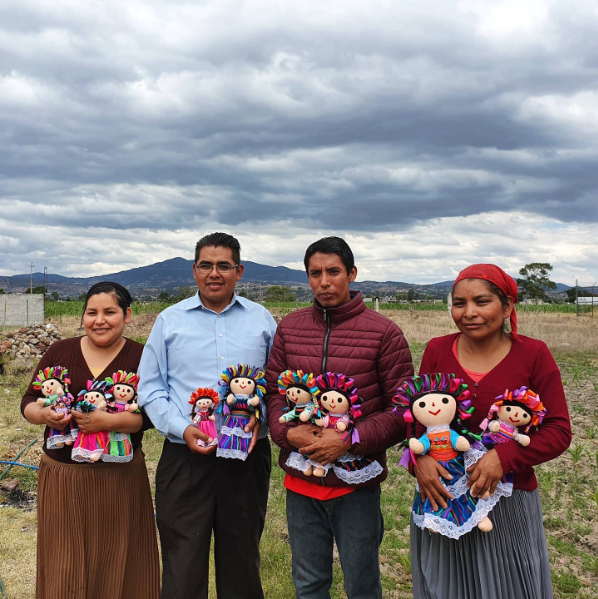
from San Felipe and Santiago Mexquititlán, Amealco. Via @mimexicotradicional
The article "La muñeca otomí ante el extractivismo epistémico" (2020) by Imelda Aguirre Mendoza and Julio César Borja Cruz explores the epistemic extractivism surrounding the Otomí doll. The authors critically examine how this doll has been commodified by researchers, entrepreneurs, and government agencies, transforming an indigenous cultural expression into a profitable commodity. This process not only commercializes the doll but also trivializes the native knowledge and practices it embodies, as part of broader policies that market indigenous culture for economic gain (2020).
The economic empowerment of indigenous women through traditional crafts like the Lelé dolls should not only provide a source of income but also foster a sense of pride in their cultural heritage (Aguirre Mendoza & Borja Cruz, 2020). As such, it is crucial to ensure that the artisans maintain control over their work and receive fair compensation for their labour in a market that increasingly values authentic cultural products. This involves creating sustainable and ethical market practices that prioritize the welfare of the artisans over the demands of tourism and commercial interests. An example could be based on the origins of the Lelé doll: establishing cooperatives that enable artisans to share in the profits and decision-making processes, providing educational opportunities to enhance business skills, and ensuring that artisans have a significant voice in how their creations are marketed and sold.
